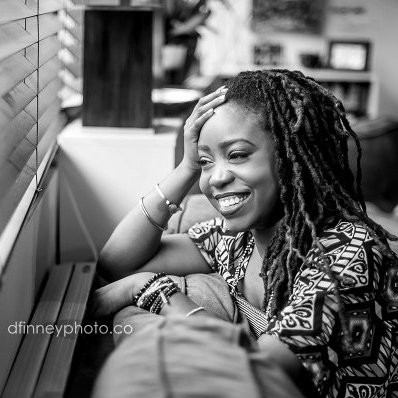
We are entering into an exciting new age of wearable technology. In just over five years, there will be over 30 million devices connected to the web. As everything from home appliances to entire city systems begin to come online, we are witnessing an explosion of objects that are revolutionizing the way we interact with the world around us.
Technology and innovation are crucial to the development of the social impact sector. As the market for wearable technology grows, it is expanding beyond devices aimed at wealthy consumers, to supporting the needs and aspirations of the nearly 1 billion people around the world living in poverty. It is for this reason that United Nations Children's Fund (UNICEF) is challenging social innovators, designers, entrepreneurs, engineers, makers and technologists all around the world to design wearables for good.
The Wearables for Good Challenge seeks to develop innovative, affordable solutions to make wearables and sensor technology a game-changer for women and children. This challenge is an effort to bring together the design, technology and social impact communities to encourage the creation of wearable solutions for social good.
Wearable technology for social impact
Wearables are primed to drive the next wave of development for social impact by opening up new channels for connecting the hardest to reach services, new ways for citizens to have their voices heard, and new opportunities for civic engagement in government processes. We now have an opportunity to expand upon the concept of technology for development by focusing on the potential applications of wearables in the developing world.
A wearable built to address social good would ultimately need to be cost effective, low-power, durable and scalable. The Wearables for Good Challenge is open to ideas within any of UNICEF’s seven strategic pillars: child protection, education, health, HIV/AIDS, nutrition, social inclusion and WASH (water, sanitation and hygiene).
Ideas for Innovation should strengthen health and community systems, scale up or integrate into existing services, and create an understanding of what systems are present in the intended market, as well as what can be further developed. The ideas should be sustainable, lend knowledge for implantation, and reduce inequalities that exist due to social and economic marginalization.
Principles of innovation
UNICEF Innovation is an interdisciplinary team of individuals around the world tasked with identifying, prototyping and scaling technologies for the greater good. “There is an untapped market in creating innovations for people in developing countries who truly need to access the three pillars of global citizenship: information, opportunity and choice,” the company explained in its Wearables for Good Use Case Handbook. “We want to encourage the idea that all of us -- makers, engineers, do-gooders, executives, computer scientists, inventors, innovators -- are making things that are not just nice to have, but that people need.”UNICEF Innovation has developed nine Principles for Innovation and Technology in Development. These principles are not intended as hard and fast rules but meant as best-practice guidelines to inform the design of technology-enabled development programs, including those ideas submitted for the Wearables for Good challenge.
Design with the user. Develop context-appropriate solutions that are informed by user needs and useful for the most marginalized populations: women, children, those with disabilities, and those affected by conflict and disaster.
Understand the existing ecosystem. Participate in networks and communities with like-minded practitioners and align to any existing technological, legal and regulatory policies.
Design for scale. Develop in modular ways -- using, modifying or extending existing tools, platforms and frameworks whenever possible.
Build for sustainability. Utilize and invest in local communities and developers to help catalyze their growth. Plan for long-term financial health and engage with local governments.
Be data driven. Use real-time information to monitor and inform management decisions at all levels and design projects so that impact can be measured at discrete milestones with a focus on outcomes rather than outputs.
Use open standards, open data, open source and open innovation. Develop software to be open source and expand on existing open standards.
Reuse and improve. Employ a “systems” based approach to design, considering implications beyond and immediate project. Design ideas should be replicable and customizable in other countries and contexts. Demonstrate impact before scaling a solution.
Do no harm. Assess and mitigate risks to the security of users. Ensure equity and fairness in co-creation and protect the best interests of end-users.
Be collaborative. Engage diverse expertise across disciplines and industries at all stages.
Awards
The Wearables for Good challenge will run over six months, with two winners selected. Each winner will receive funding ($15,000 USD) and an idea incubation prize package to be supplied by the three challenge partners (UNICEF, microprocessor maker ARM and design firm Frog).
Winners of the Wearables for Good design challenge will get access to ARM technology, development tools and mentoring from wearables tech experts that will help take new inventions from the page to the production line. Frog will bring its product strategy and design expertise to the challenge by offering mentorship to the winners of the challenge. Challenge winners will also be mentored and incubated through UNICEF’s network of innovation labs and partners, giving the proposed solutions a chance to interact with real-word context, issues and opportunities.
Click here for more information about the Wearables for Good Challenge. Applications are open until August 4.
Image credits: UNICEF

Joi M. Sears is the Founder and Creative Director of Free People International, a social enterprise which specializes in offering creative solutions to the world's biggest social, environmental and economic challenges through the arts, design thinking and social innovation.














